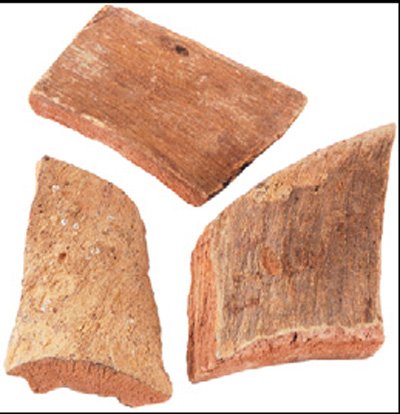Arjuna
Ayurvedic Medicine

Arjuna
Arjuna myrobalan (E), Arjun (H):
Arjuna means 'white' or 'shining', named after its bark which literally reflects light wherever this huge tree grows. Its name is also associated with 'Arjuna', one of the heroes of the great Indian epic, the Mahabharata. The pale white bark of the arjuna tree 'moults' naturally once a year; its new skin bringing new life. It is harvested when the tree is mature, thus attesting to its ability to prolong life, protect the elderly and strengthen the heart.
Heart Angina, congestive heart failure, cardiac arrhythmia, hypertension have all showed signs of improvement in human clinical trials. Arjuna has also been shown to reduce total cholesterol and triglyceride levels. It reduces inflammation (P) and congestion (K) that can damage the heart. Used to treat emotional disturbance and 'broken heart'. It strengthens the muscles of the heart as well as toning the capillaries and improving flexibility, which helps to prevent high blood pressure. It helps to balance the movement of vyana vayu in the heart and regulate circulation. Lungs Its affinity for the chest directs arjuna to the lungs and can help alleviate productive coughs with copious mucus in bronchitis and asthma due to excess kapha. It can also treat haemoptysis from high pitta. Liver Cirrhosis; it improves liver function and inflammation. Skin Useful as an alterative for clearing the skin of pitta inflammations; acne, acne rosacea, pruritus and urticaria. Tissue Its wound healing ability is demonstrated in post-trauma healing of scars, post-operative recovery and repairing fractures. A paste or tincture applied externally can rapidly hasten healing. It is used internally and externally for healing diabetic ulcers. Reproductive tissues Its astringency prevents premature ejaculation and uterine bleeding.
 Safflower
Safflower Kutki
Kutki Jatamamsi
Jatamamsi Bala
Bala Damanaka
Damanaka Sandalwood
Sandalwood Gotu Kola
Gotu Kola Hemp Seed
Hemp Seed Pepper
Pepper Tagarah
Tagarah Senna
Senna Pippali
Pippali Test your English Language
Test your English Language  Grandparents Day Celebration
Grandparents Day Celebration Tarot Cards
Tarot Cards Narayana Murthy
Narayana Murthy Precautions while using CNG
Precautions while using CNG Benefits of Ginger
Benefits of Ginger Best Foods to Eat If You Start Feeling Sick
Best Foods to Eat If You Start Feeling Sick The Best Selling Cars in the World
The Best Selling Cars in the World What to Eat in Madhya Pradesh
What to Eat in Madhya Pradesh Beautiful National Parks Around the World
Beautiful National Parks Around the World Xmas Toys
Xmas Toys Promise Day
Promise Day Tips to get ready for Work
Tips to get ready for Work Tips to successful Relationship
Tips to successful Relationship Best Cities for young People
Best Cities for young People Best Cricketer
Best Cricketer




